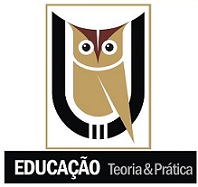Juventud, Educación y Derechos Humanos en la Pérdida de Libertad
DOI:
https://doi.org/10.18675/1981-8106.vol26.n51.p79-96Palabras clave:
Juventude, Escolarização, Privação de LiberdadeResumen
Este trabajo tiene como objetivo reflexionar sobre el proceso de escolarización de los jóvenes privados de libertad, haciendo el análisis de las concepciones de la adolescencia/juventud y violencia por parte de los maestros/ras que enseñan/enseñaron en clases en Unidades de internación de la Fundación Casa (SP), desde la perspectiva de los derechos humanos y del proceso de la enfermedad de los docentes. Se trata de un estudio cualitativo, que utilizó entrevistas semiestructuradas con maestros/ras de las cuatro unidades de hospitalización en las ciudades del interior de São Paulo. Se encontró que la lógica educativa se configura como similar a la educación regular que se ofrece en las escuelas integradas en la comunidad, lo que parece dificultar el ejercicio del derecho a la educación de los jóvenes en custodia. El espacio de la escolaridad parece marcado por las formas explícitas e implícitas de violencia experimentadas por los/las alumnos/as y por los/as maestros/as. En ese último caso, el sufrimiento se ha configurado en un proceso y/o adaptación a la enfermedad, como formas de supervivencia en el trabajo. Entendido los derechos, a partir de su puesta en práctica, hay una necesidad de una propuesta de enseñanza y aprendizaje articulado en el contexto de la privación de la libertad, que tiene sentido para ellos, en vista de garantizar los derechos fundamentales a la dignidad humana. Palabras clave: Juventud; La escolarización; Privación de libertad.Descargas
Archivos adicionales
Publicado
Cómo citar
Número
Sección
Licencia
Os Autores que publicam nessa revista concordam com os seguintes termos:
a) Os autores cedem os direitos autorais à revista, com o trabalho simultaneamente licenciado sob a Creative Commons Attribution License que permite o compartilhamento do trabalho com reconhecimento da sua autoria e publicação nesta revista.
b) A política adotada pela Comissão Editorial é a de ceder os direitos autorais somente após um período de 30 meses da data de publicação do artigo. Transcorrido esse tempo, os autores interessados em publicar o mesmo texto em outra obra devem encaminhar uma carta à Comissão Editorial solicitando a liberação de cessão dos direitos autorais e aguardar resposta.
c) Esta revista proporciona acesso público a todo o seu conteúdo, uma vez que isso permite uma maior visibilidade e alcance dos artigos e resenhas publicados. Para maiores informações sobre esta abordagem, visite Public Knowledge Project, projeto que desenvolveu este sistema para melhorar a qualidade acadêmica e pública da pesquisa, distribuindo o OJS assim como outros softwares de apoio ao sistema de publicação de acesso público a fontes acadêmicas. Os nomes e endereços de e-mail neste site serão usados exclusivamente para os propósitos da revista, não estando disponíveis para outros fins. This journal provides open any other party  Esta obra está licenciada sob uma Licença Creative Commons
Esta obra está licenciada sob uma Licença Creative Commons











